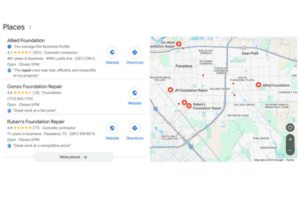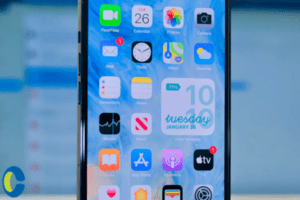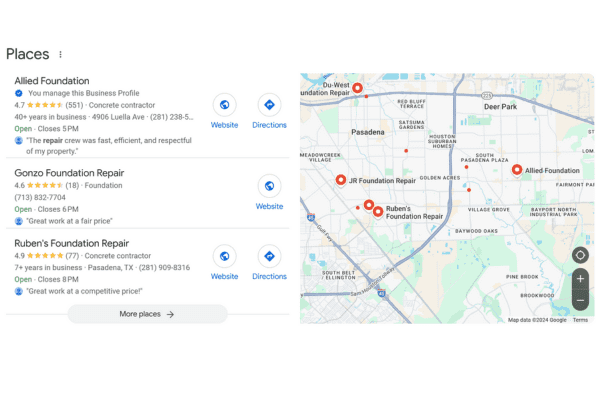As a small business owner, it’s easy to assume that digital marketing is just about showing up on social media. After all, it seems like everyone is talking about Instagram, Facebook, and TikTok. But while posting on social platforms is important, digital marketing is way more than that. If you want to stand out and grow your business online, you need a strategy that goes beyond just scheduling posts or liking comments.
So, what does “digital marketing” really mean for a small business, and how can you use it to your advantage? Let’s dive into the different pieces of the puzzle and how each can help you attract customers, build relationships, and ultimately boost sales.
1. Your Website: The Home Base of Your Digital Presence
Think of your website as the hub for all of your online activities. It’s the one place you fully control (unlike social media, where algorithms can change at any time). Your website is where people will land after discovering you online, whether through a Google search, an email campaign, or even a social media post.
So, make sure it’s optimized and easy-to-use. This means fast loading times, a clear layout, easy navigation, and mobile-friendliness. It should also reflect your brand’s personality and message. Beyond aesthetics, you’ll want your site to work hard for you—whether that’s through calls-to-action (CTAs) to encourage people to sign up for your newsletter, shop, or contact you. Having a blog on your site can also help you establish authority in your industry and improve your search engine rankings.
2. Search Engine Optimization (SEO): Get Found Organically
SEO might sound technical and overwhelming, but it’s key to driving organic traffic to your website. It’s essentially the process of optimizing your site so it shows up when people search for keywords related to your business.
For example, if you run a bakery in Houston, you want to show up when someone searches “best bakery in Houston” on Google. SEO involves a mix of things—like using the right keywords on your website, creating quality content (such as blog posts or product descriptions), and getting other reputable websites to link to yours. The goal is to get on the first page of search results, because, let’s face it, most people don’t scroll beyond that.
A solid SEO strategy can be the difference between being invisible online and having a steady flow of customers finding you organically.
3. Email Marketing: Build Relationships Directly
While social media is great for visibility, email marketing is where the magic of direct communication happens. People who sign up for your email list are already interested in your business—they want to hear from you! With a good email marketing strategy, you can nurture these leads and turn them into loyal customers.
You can use email campaigns to share promotions, product updates, and personalized content that adds value. The best part? You own your email list (again, unlike social media followers), so you don’t have to worry about algorithm changes affecting your reach. Email marketing is personal, and when done right, it can be one of the most effective digital marketing strategies for small businesses.
4. Content Marketing: Become an Authority
Posting on social media is one way to share content, but content marketing goes deeper. It’s about creating valuable, informative, and consistent content that positions your business as an authority in your field. This could be in the form of blog posts, videos, e-books, infographics, podcasts, or even webinars.
The key here is not to focus on selling all the time. Instead, think about how you can educate or entertain your audience. What questions are they asking? What problems do they need solved? By providing solutions or insights, you build trust with potential customers. When they’re ready to make a purchase, they’ll be more likely to turn to you because you’ve already demonstrated your expertise.
5. Pay-Per-Click Advertising (PPC): Targeted Traffic Fast
If SEO is the slow and steady race to the top of search results, PPC is the shortcut. With PPC advertising, you can pay to have your business appear at the top of search engines like Google or even on social media platforms. You only pay when someone clicks on your ad, making it a cost-effective way to drive traffic to your website.
The beauty of PPC is that it’s highly targeted. You can choose exactly who sees your ad based on factors like demographics, location, and interests. This means you’re spending your marketing dollars more efficiently because your ads are being shown to people who are most likely to be interested in your products or services.
6. Analytics: Tracking Your Success
The beauty of digital marketing is that almost everything is measurable. Unlike traditional marketing, where it’s hard to know how many people saw your newspaper ad or billboard, digital marketing gives you access to detailed data about who’s engaging with your business online.
Analytics tools can show you how many people are visiting your website, where they’re coming from, how long they’re staying, and what actions they’re taking. You can also see how well your social media posts, emails, and paid ads are performing. By regularly reviewing this data, you can make informed decisions about where to invest your time and money moving forward.
Beyond Social Media: A Holistic Approach
In the end, while social media is an important part of digital marketing, it’s not the whole picture. For small business owners, it’s essential to think beyond the occasional Instagram post. By building a strong website, optimizing for search engines, using email and content marketing, leveraging PPC, and analyzing your results, you’ll have a well-rounded digital marketing strategy that can drive real growth.
And the best part? All of these tactics work together. They’re like puzzle pieces that, when combined, help create a bigger, more effective picture of your brand online.
So, next time someone says, “You just need to post more on social media,” you’ll know you’re already on the path to a smarter, more comprehensive approach to digital marketing!















